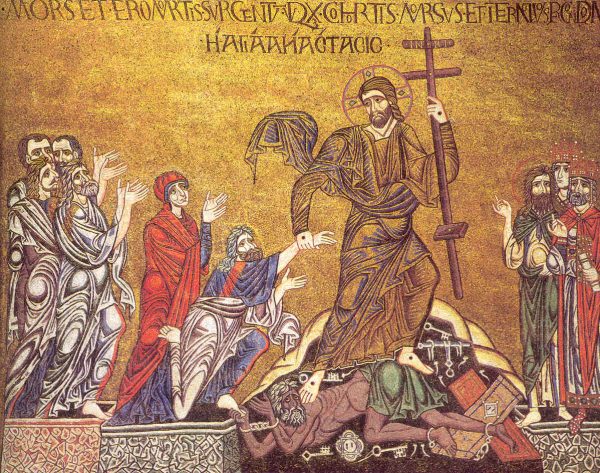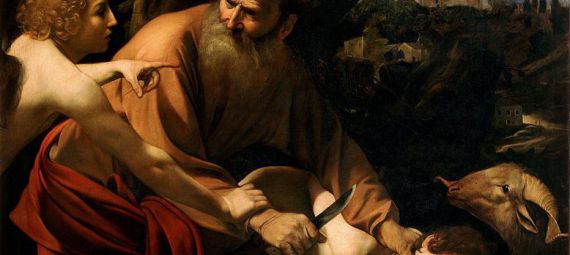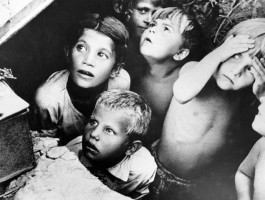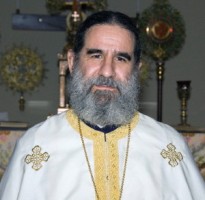This morning I was asked a great question: “Did God (the Father) kill Jesus?” Well…
So, the full answer to this question could take up an entire Ph.D. thesis. However, I’m going to try and give the short answer below.
Atonement
For the western Christian, the question is valid because the western Christian views salvation from a particular theological slant: we sinned, thus transgressing God’s law. The only way to resolve this issue is for the sinner to be punished. However, in western Christianity, Jesus, as the Son of God, steps in and takes our punishment for us.
This whole idea – that the problem is sin – is also a western “invention,” if I may call it that. It comes from a mistranslation into Latin of Romans 5:12 by Jerome, and then Augustine developed the idea of Original Sin. This was later more fully developed by Thomas Aquinas (for more information see John Meyendorff’s Byzantine Theology, pg. 144-145) and it has had a big impact on both Catholicism and Protestantism.
I don’t know about you, but I’m wary of developing an entire theology – and trusting my salvation – to a mistranslation!
This also leads me to ask: can the god of western Christians not forgive? If sin absolutely needed to be punished – either we take the hit or Jesus – then, it would seem, there is no real forgiveness in western Christianity! It would also seem that the Father killed the Son, or at least required it.
Yikes!
The Real Problem
To see what the real problem is, let’s go back to Romans 5:12; this time translated properly (by Fr. John Meyendorff):
“As sin came into the world through one man and death through sin, so death spread to all men; and because of death, all men have sinned.”
In other words, the true problem is death, not sin.
Yes, the sin of Adam and Eve had consequences for all of humanity. Their sin led the entire cosmos away from God – who is the only source of life – and thus all of creation withers away and dies.
But, Adam and Eve’s sin is theirs only. Yes, we live with the consequences, just like a baby has to live with the consequences of a mother who does drugs or drinks during pregnancy, but the guilt of the sin is only theirs, just like a baby is not guilty of being born with fetal alcohol syndrome.
The fear of death, though, leads us to sin, but the real problem is death.
The Cross
So, if the problem is death – a separation from God, the source of Life – the cross makes sense.
In order to destroy death, God had to enter into death – to conquer it. And, in order to do that, he had to take on flesh, because God could only die as a human, not as God.
So, for Christians, Christ’s death is the conquering of death by filling it with life. With the resurrection, death itself is vanquished.

Or, as we Orthodox Christians proclaim, over and over again at Pascha:
Christ is risen from the dead, by death trampling upon death, and upon those in the tombs, bestowing life!
Did the Father Die As Well?
So, if Christ was hypostatically united to the Father (Light of Life, True God of True God, as our Creed says), did the Father suffer and die as well?
The short answer: No!
God, the Father, is impassible, which means he does not change. One cannot become human (and grow up) and suffer without effecting change. This is why the doctrine of the Trinity is so important.
So, properly speaking, we say that God suffered and died as a human, not in his divine essence (ousia).
To say that the Father died and suffered is an ancient heresy called Patripassianism or Sabellianism. This heresy denies the personhood of Christ as one of the Trinity.
Summary
I’m going to end this with a quote from Fr. John Meyendorff’s book (Byzantine Theology, pg. 160-162). I think this summarizes everything very well.
“Byzantine theology did not produce any significant elaboration of the Pauline doctrine of justification… The Greek patristic commentaries on such passages as Galatians 3:13 generally interpret the idea of redemption by substitution in the wider context of victory over death and of sanctification. They never developed the idea in the direction of an Anselmian theory of ‘satisfaction.’ The voluntary assumption of human mortality by the Logos was an act of God’s ‘condescension’ by which He united himself to the whole of humanity; for, as Gregory of Nazianzus wrote, ‘what is not assumed is not healed, and what is united to God is saved’; therefore, ‘we needed a God made flesh and put to death in order that we could live again.’
“The death of ‘One of the Holy Trinity in the flesh’ was a voluntary act, a voluntary assumption by God of the entire dimension of human tragedy. …
“Given the fallen state of man, the redemptive death of Christ makes this final restoration possible. But the death of Christ is truly redemptive and ‘life-giving’ precisely because it is the death of the Son of God in the flesh (i.e., in virtue of the hypostatic union). In the East, the cross is envisaged not so much as the punishment of the just one, which ‘satisfies’ a transcendent Justice requiring a retribution for man’s sins. As Georges Florovsky rightly put it: ‘the death of the Cross was effective, not as a death of an Innocent One, but as the death of the Incarnate Lord.’ The point was not to satisfy a legal requirement, but to vanquish the frightful cosmic reality of death, which held humanity under its usurped control and pushed it into the vicious circle of sin and corruption. And, as Athanasius of Alexandria has shown in his polemics again Arianism, God alone is able to vanquish death, because He ‘alone has immortality’ (I Tm 6:16). Just as original sin did not consist in inherited guilt, so redemption was not primarily a justification, but a victory over death. Byzantine liturgy, following Gregory of Nyssa, uses the image of the devil swallowing a hook [life a fish], hidden by the body of Emmanuel…’Hell received a body, and encountered God; it received mortal dust, and met Heaven face to face.’ …
“For the Resurrection of Christ means indeed that death has ceased to be the controlling element of man’s existence and that, therefore, man is also free from slavery to sin. …’As in Adam all die, so also in Christ shall all be made alive’ (I Co 15:22)”
So, the short answer is: no, the Father does not kill the Son; instead, the Son voluntarily, out of love, becomes human in order to confront death and destroy it, healing us of our sin and paving the way for our resurrection.




















